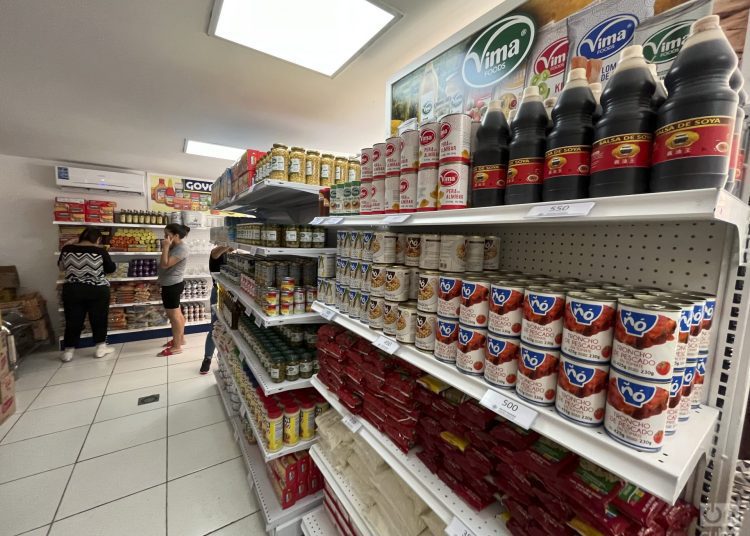Cuban entrepreneurs have increased the import of food and agricultural products from the United States and already exceeded 37 million dollars in June, El Nuevo Herald revealed.
The newspaper, which cites data from the U.S.-Cuba Economic and Trade Council, points out that exports this year until June have risen 11% compared to 2022.
However, what is striking in the eyes of specialists is that the island’s private sector opened up the range to other products that the state company Alimport did not buy.
The products
What John Kavulich, president of the Council, calls “private sector to private sector transactions” includes inputs such as organic and non-organic coffee, cheese, coffee creamers and ice cream.
Chocolate, cookies, cakes, French fries, spices, popcorn, peanut butter, maple syrup and many others going to the private sector also appear, the outlet noted.
Quoted by the Herald, Kavulich pointed out that the government still makes the most important purchases, but the private sector is also making acquisitions in smaller quantities.
Between January and June, Cuba spent some 134 million dollars on chicken, an amount that demonstrates the concentration on poultry and agricultural products.
However, “there’s a higher percentage of other things,” Kavulich added, like crushed and ground ginger, popcorn (15,981 year-to-date), nearly 1.9 million in coffee, 41,356 in essential oils. Meanwhile, to a lesser extent, there are amounts such as 4,952 in olive oil and 7,064 in ice cream.
The annual figures, which go through June, reveal that U.S. companies have also sold $30,241 worth of sugar to Cuba since Kavulich began compiling these statistics, El Nuevo Herald explained.
The Cuban private sector is also buying “products that state enterprises do not produce or import,” such as toilet paper, shampoo, soap, deodorant, and toothpaste. Likewise, it happens with construction materials, spare parts for air conditioners, trucks and industrial machinery.
In general terms, and although the figures do not only represent commercial activity, exports from the United States to Cuba totaled 323.5 million dollars in 2021, which represented an increase of 83% compared to 2020, according to the Bureau of Industry and Security of the Department of Commerce. This office issues licenses to companies that intend to export authorized products to Cuba.
Cuba, despite the embargo/blockade, frequently buys agricultural products, food, and other basic items from the United States since Congress authorized exceptions for the export of food and medicine, the Herald pointed out. To achieve this it must pay with cash.









